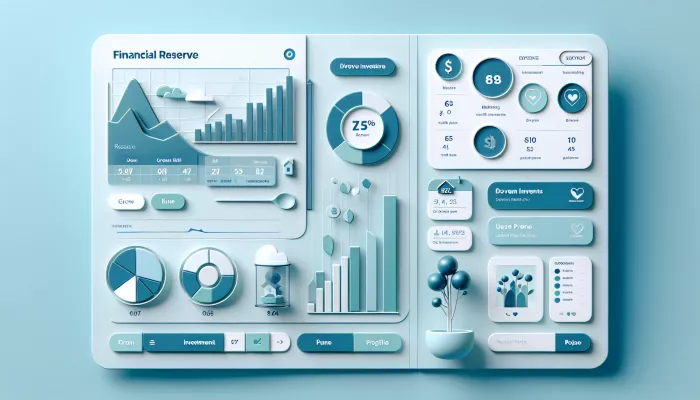
Understanding the influence that inflation has on purchasing power is fundamental to making sound financial decisions.
Inflation is an economic phenomenon that represents the generalized increase in the prices of goods and services over a given period of time.
The link between inflation and purchasing power
The relationship between inflation and purchasing power is inversely proportional - in other words, when one increases, the other tends to decrease.
This is due to the decrease in the real value of money as a result of the continuous rise in prices. As a result, the same amount of money buys a smaller quantity of goods and services.
The reduction in purchasing power caused by inflation can be reflected in different ways in everyday life, such as:
Although inflation is an economic phenomenon that cannot be controlled individually, there are some strategies we can adopt to minimize its impact on our purchasing power.
Some examples are:
Recognizing and understanding how inflation affects your purchasing power is fundamental to mitigating its effects and maintaining financial health.
Understand how income directly affects purchasing power is essential for efficiently planning your finances and achieving your financial goals.
A income is the money you earn from your work, investments or business. Basically, it's the total amount of money you receive in a given period.
O purchasing power, on the other hand, is the amount of goods or services you can buy with the amount of money you have.
With an increase in income, an individual has the perceived increase in purchasing power.
However, it's important to understand that this perception may not always be true. External factors, such as inflation and economic conditions, also affect purchasing power.
The higher the income, the greater the ability to save and invest.
This is because the added income above basic spending can be allocated to the economy or to investments, further improving its performance. financial health.
What's more, income plays a direct role in quality of life.
Those with higher incomes have access to better health, education and leisure resources, as they have greater purchasing power.
With the current economic climate, it's essential to find ways to stretch every penny. This content will guide you through some effective strategies to increase your purchasing power.
The first strategy is to have a conscious budgeting. Without a clear understanding of how much you are earning and spending, it is almost impossible to make significant changes.
There are several budget apps that can help with this, such as Mint and You Need a Budget.
The next strategy is smart saving. Once you have a budget, you can start to identify areas where you can save.
This doesn't necessarily mean cutting out all entertainment, but perhaps finding more economical ways to do the things you enjoy.
A investing your money is another effective way to increase your purchasing power.
Although there is a certain level of risk involved, investing in shares, bonds or property can provide significant returns over the long term.
Finally, strive to maximize your earnings. This could mean negotiating a raise at work, starting a side business, or looking for forms of passive income.
Every extra bit can make a big difference.
In conclusion, increasing your purchasing power involves a combination of conscious budgeting, smart saving, wise investments and maximizing earnings.
With these strategies in place, you can stretch your money further than you ever imagined.
Links to the applications mentioned: